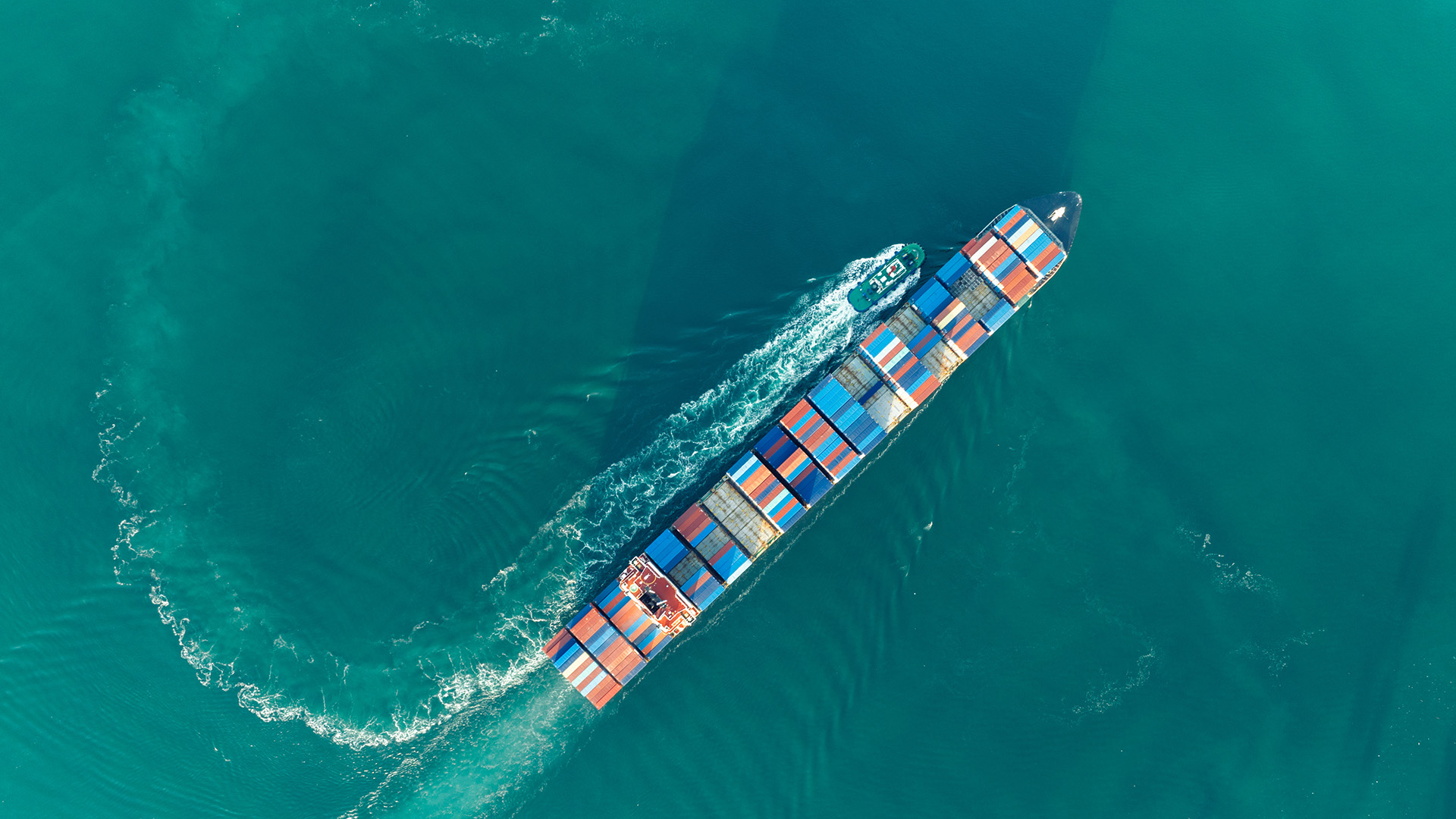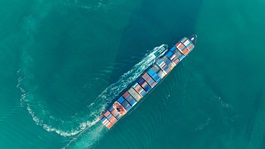
Publication
Case filings and docket equalization
Since its inception on September 1, 2024, 103 total cases have been filed in the five operating divisions of the Texas Business Court.


United States | Publication | April 2025
On March 24 and 26, 2025, public hearings (the Hearings) were held in connection with the Office of the United States Trade Representative’s (USTR) proposed actions under Section 301 of the Trade Act of 1974 (Section 301) related to China’s Acts, Policies and Practices Targeting the Maritime, Logistics and Shipbuilding Sectors for Dominance.
On February 21, 2025, USTR published its proposed actions under Section 301 to address the harm USTR previously concluded the US was incurring as a result of China’s targeting of the maritime, logistics and shipbuilding sectors for dominance (the Proposed Action). The Proposed Action recommends imposing (1) significant port fees on Chinese maritime transport operators and operators with current fleets of Chinese-built vessels (including operators with orders for such vessels), and (2) requirements for the increased use of US vessels to carry US goods in coastwise and international transport from US ports. If adopted, the Proposed Action will have far reaching consequences, both politically and economically. More information regarding the specifics of the Proposed Action can be found in our previous publication, "USTR proposes port fee increases on Chinese vessels and vessel operators."
Prior to the Hearings, the USTR invited public comment on the Proposed Action, giving those interested in submitting comments on the Proposed Action an opportunity to do so until March 24, 2025. Additional post-Hearing comments will be allowed until April 2, 2025. As of March 31, 2025, there were over 520 submissions to the public docket.i Several organizations and individuals submitted comments and letters in response to the Proposed Action. BIMCO, the largest direct entry membership organization in the shipping industry representing almost 2,100 members and 63 percent of the global merchant fleet, measured by deadweight tonnage (DWT), submitted comments contextualizing the recommendations in the Proposed Action. Specifically, BIMCO highlighted that Chinese-built ships would not “disappear from the world fleet if the proposed port fees are introduced” but rather that “the shipping industry will seek to avoid paying fees.” BIMCO further notes that imposing the port fees recommended in the Proposed Action “will significantly increase the cost of seaborne transport to and from the United States of America – even if operators are pursuing avoidance strategies.”ii
The Hearings were held at the US International Trade Commission on Monday, March 24, 2025, and continued on Wednesday, March 26, 2025. The published hearing schedule for the Hearings included opening remarks from the Section 301 Chair as well as Congressional statements and a total of fourteen panels of interested persons across both days of hearing. Interested parties who spoke on the panels at the Hearings included representatives of over sixty organizations, including representatives from unions and shipowner associations, as well as market participants whose supply chains could be impacted by the proposed action.
Labor organizations, including the United Steelworkers, spoke in support of the Proposed Action citing the presumed benefits to US labor of increased demand for US vessel manufacturing. Additionally, the American Iron and Steel Institute (whose membership consists of US iron and steel companies) endorsed the Proposed Action, urging the USTR to go even further to promote US industry by implementing requirements that domestically sourced materials be used in US shipbuilding. Likewise, the Chamber of Marine Commerce (CMC), a binational association based in Ottawa, Canada which represents marine industry stakeholders, spoke in favor of the Proposed Action and made recommendations during the Hearings. In particular, CMC President Bruce Burrows explained that “[t]he CMC welcomes the concept of a stronger US-based shipbuilding industry and is keen to help the US government achieve its intended goals of protecting Americans from excessive foreign influence while growing the economy through enhanced shipbuilding.”iii
However, other industry representatives were more skeptical and spoke in opposition to the Proposed Action. Participants from multiple economic sectors, ranging from agriculture to energy, expressed concerns regarding the Proposed Action’s fees and cited the potential for such fees to burden US companies, workers and consumers. Substantial concerns were raised by panelists that the fees would limit the ability of US companies to compete internationally by making exports more expensive and significantly disrupting US supply chains. Edward Gonzalez, CEO of Florida-based Seaboard Marine, the largest US-owned international ocean cargo carrier, testified on the first day of the Hearings: "[n]ational interest will not be served if the effort to boost American shipbuilding unintentionally destroys American-owned carriers."iv
Transcripts of the Hearings will be made publicly available on USTR’s website after the conclusion of the Hearings. As of the date of this update, only the transcript of the March 24 hearing is available, with the transcript of the March 26 hearing expected shortly. USTR will consider the testimonies and written submissions made in connection with the Hearings to determine the desirability and feasibility of the proposal. Post-hearing rebuttals and comments may be submitted for consideration within seven days after the last day of the public hearing.
As the debate surrounding the Proposed Action continues, interested parties across all sectors of the economy are continuing to monitor the discussion to try to glean more certainty pertaining to the potentially far-reaching consequences of the Proposed Action. Concerns remain about how the Proposed Action would be implemented, not in small part because key terms in the Proposed Action remain undefined. For example, the term “Chinese maritime operator” is not defined in the Proposed Action, creating uncertainty around whether vessels owned by US companies but flagged elsewhere, or those with indirect Chinese investment, would be subject to the proposed fees. Additionally, “ownership” in practice is not always as clear or simple as the term implies in the Proposed Action, and using a term like “owner” could fail to capture beneficial ownership or other aspects of “control” through lease or equity interests that may not fall within the language of the Proposed Action without clarification.
Industry participants should continue to review their existing charter parties and commercial structures to determine how the proposed fees and requirements set out in the Proposed Action could impact their business. Specifically, those parties with existing contracts should review their trading and shipping contracts to determine:
For parties considering entering into a new trading or shipping contract, the potential impacts of the Proposed Action should be discussed and clearly allocated and addressed prior to execution.
i Public Docket Request for Comments Concerning Proposed Action Pursuant to the Section 301 Investigation of China’s Targeting of the Maritime, Logistics, and Shipbuilding Sectors for Dominance.
ii BIMCO Letter to US Trade Representative
iii Deanne Toto, USTR hears comments on port fee proposal, March 27, 2025.
iv Lisa Baertlein and David Lawder, Trump's port fees on Chinese ships threaten US maritime industry, say executives, March 25, 2025.

Publication
Since its inception on September 1, 2024, 103 total cases have been filed in the five operating divisions of the Texas Business Court.

Publication
Public hearings were held in connection with the Office of the United States Trade Representative’s proposed actions under Section 301 of the Trade Act of 1974 related to China’s Acts, Policies and Practices Targeting the Maritime, Logistics and Shipbuilding Sectors for Dominance.

Publication
The Federal Circuit recently issued an opinion expanding the categories of evidence that complainants (e.g., patent owners) may use to prove Economic Domestic Industry in 19 U.S.C. § 1337 cases before the International Trade Commission.
Subscribe and stay up to date with the latest legal news, information and events . . .
© Norton Rose Fulbright US LLP 2025